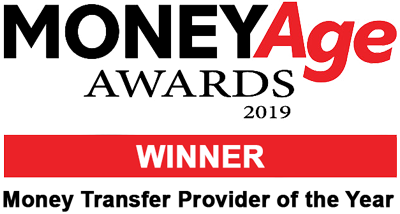Cross border B2B payments to Canada
Quick, simple and transparent international transfers in Canadian dollars



How we can help your business transfer money to and from Canada
Forward Contract
Forwards allow you to buy currency on an agreed future date at a pre-fixed rate. This may require a deposit and allows you to lock in a rate for up to two years.*
Spot Contract
This is an agreement between you and your FX provider to buy currency at the present exchange rate, and it can be used for imminent payments.
FX Orders
If you need a particular exchange rate but have no urgency to purchase straight away, an FX order could help you secure a better deal.
FX Options
Designed for foreign exchange rate management, options can be created as a bespoke solution for your business and its payment needs.**
A country renowned for its prosperous cities, welcoming small towns and stunning natural beauty, Canada lays claim to the ninth-largest economy in the world: as of 2021, Canada’s GDP stood at $1.66tn, or 1.49% of the world economy. With its pro-investment policies and thriving local industries, there is much to capture the attention of those interested in doing business here.
The country’s welcoming foreign investment environment means that it is very much open for business. Canada is one of the most cost-effective nations to do business, owing to its low business operating costs, and the North American Trade Agreement (NAFTA) offers access to the entirety of the North American market. With its skilled workforce and stable banking system, in addition to its strategic location between North America and Asia, Canada offers an ideal business environment.
Whilst this is the case, it is imperative that all businesses that register in Canada comply with the Investment Canada Act. Foreign investors are under an obligation to notify the Canadian government when they acquire control of a Canadian business and upon starting a new business activity. This is to ensure that Canadians benefit from foreign business dealings. Unless there is a specific exemption from doing so, investors from outside Canada must file an application or notification for review.
Those starting a new business or acquiring control of a Canadian business with less than $5 million in assets are usually exempt from review. There are two exceptions to this general rule: existing businesses that are connected to the country’s national identity or cultural heritage.
One of the first steps is choosing a form of business, such as a sole proprietorship, partnership, corporation, or joint venture. If you choose to operate as a corporation, you will need to decide whether to open a Canadian branch or to incorporate a subsidiary.
Prospective businessmen need to decide whether to incorporate their companies at the provincial or federal level. The latter option allows you do business throughout the country under your company name, even if you may need to pay the occasional provincial registration or license fee.
Guide to business in Canada for foreigners
Is doing business in Canada easy?
As of 2020, Canada ranked 23rd worldwide out of 190 countries in the World Bank’s Ease of Doing Business Survey, above the US (6th), the UK (8th) and Germany (22nd). This impressive ranking owes largely to the country’s excellent infrastructure and investment-encouraging policies, with the ease of starting a business, credit options, and protection offered to minority investors acting as contributing factors.
Canada boasts a number of other enviable features, such as trade agreements with the US, Latin America, and Europe, a low corporate tax rate, financial stability, and good incentives for undertaking research and development. The two areas of the survey in which the country scored poorly were obtaining electricity and contract enforcement.
Why start a business in Canada?
There are plenty of reasons to start a business in Canada, from a low corporate tax rate to a friendly commercial environment for start-ups.
Indeed, there are few better places to do so than in Canada. The facts and figures speak for themselves: CEO World Magazine ranked Canada in 17th place in its list of the best countries for entrepreneurship, ahead of Switzerland (20th) and China (24th). This is by no means surprising, given Canada’s closeness to the US market, its highly skilled labour force and abundant natural resources.
Other advantages of doing business in Canada include low levels of corruption and relatively simple corporate legislation.
How to register a business in Canada
Registering a business in Canada is a fairly straightforward process.
Businessmen first need to decide whether they’d like to create a provincial or a federal company. Choosing to incorporate federally provides a greater level of protection for your corporate name, but it is often easier for win approval for a corporate name when filing in a provincial jurisdiction.
Once you have decided whether to incorporate at a provincial or federal level, you’ll need to register with the department that is in charge of dealing with incorporations in your province of choice. The requirements in each province and territory in Canada vary, but in most provinces, you’ll be required to complete a NUANS report within 90 days in order to find a unique name to operate under, pay fees and register for business taxes. You will also need to satisfy a residency requirement by providing a Canadian address.
There are several rules regarding foreign investment. Federal rules require that 25% of Directors be resident, but provincial requirements vary on this matter. Whilst some provinces, such as Nova Scotia, Quebec and the Yukon do not require any resident Directors, there are other provinces that stipulate a higher threshold than the federal rules. If you have an existing business that you wish to operate in Canada, you can open a branch office or a subsidiary
Canada has created an environment which allows businesses to thrive, but it’s worth taking the time to familiarise yourself with the provincial and federal rules to see which will work best for your chosen business model. When you’re developing your business plan, an international payments experts can help you manage your investment and the costs and revenue with competitive rates, expert guidance and a wealth of currency tools to support your business.
What are the major industries in Canada?
The three biggest industries in Canada are manufacturing, mining and real estate. Canada’s biggest export as of 2020 was crude petroleum ($47.2bn), followed by automobiles ($31.8bn). Canada’s strong trade links with the US underpins its strong export market of manufactured goods including cars, machinery, clothing and high technology equipment, including aerospace technology.
Canada’s service sector, in addition to its emerging digital industries, are among its fastest growing. The market size of the country’s cannabis production industry is anticipated to increase by 26.7% in 2022. Alongside traditional industries, such as corn farming and gold and silver ore mining, concert and event promotion, recreational vehicle parks and tour operators all feature in the top ten fastest growing industries in terms of revenue growth.
In this environment, innovation and novelty are richly rewarded, and it may be worth looking closely at these trends, in addition to recent changes in demand, to see where there are good opportunities for growth.
What is the corporate tax rate in Canada?
One of the main reasons that expats consider starting a business in Canada is because of the country’s low corporate tax rate. The corporate tax rate is 15%, but Canadian-controlled private corporations may be eligible to claim the Small Business Deduction, which can bring the net tax rate down to just 10%. Canadian-controlled private corporations (CCPCs) enjoy a number of benefits when it comes to taxation, with a combination of both tax credits and deductions.
Credits are available for R&D, farming and fishing in some regions, and for the creation of childcare spaces and hiring apprentices. Tax deductions can be made for common business expenses including travel expenses, accounting and legal fees.
The tax year end in Canada is March 31, and returns must be filed within six months. The process of filing business taxes is relatively simple, and this is yet another reason why Canada is ranked so highly as a place to start and grow a business.
Visit our Currency Zone to stay up to date on the pound to Canadian dollar rate and any market movements.
What are the challenges of conducting business in Canada?
On the surface, it appears that doing business in Canada is hassle-free – low taxation, strong trade agreements with the US, Latin America and Europe, financial stability and a supportive environment for R&D and innovation are all appealing. However, there are some areas to be aware of when starting a business in Canada.
Construction permits, property registration and getting electricity are all time consuming. There are 12 separate steps involved in acquiring a construction permit, which takes 250 days on average; gaining access to electricity involves fewer steps but still takes an average of 140 days. Property registration is a five-step, four-day process. The highly educated workforce fosters innovation, but there is a shortage of unskilled workers, which means that if unskilled labour is required, perhaps on a production line, staff may be costly due to labour scarcity.
While international trade is relatively smooth, there are different provincial regulations – from customs procedures and packaging requirements to federal and provincial tax accounting and bilingual labelling. The system varies from province to province – for example, in Ontario, provincial VAT has been harmonised with Federal VAT for an overall rate of 13% but in other provinces, the two are not harmonised and the rates may vary. If you’re new to the area, having local staff who understand the various processes and requirements of each province can be invaluable.
Canada is rightly regarded as an inclusive and welcoming society, and this is reflected in the country’s business culture. However, if you are planning to do business in Quebec, business signage must be in French and if you’re working with Quebecois partners or suppliers, a working knowledge of French will prove to be an asset, as it will help you build strong business relationships.
The costs of doing business in Canada
Generally speaking, the costs of doing business here are relatively low. Even so, the costs vary from place to place within the country. For example, it might be more expensive to open a business in Montreal or Toronto than in, say, a small town in British Columbia. Start-up costs will also vary depending on the industry.
Among the costs to consider are registration and licensing fees, tools and equipment, inventory, office and/or warehouse space, utilities such as internet and phone, marketing, payroll, insurance, taxes, and shipping costs. The owners of small businesses in Canada spend between $5,000 and $10,000, on average, when starting their businesses.
What are the biggest opportunities for doing business in Canada?
Canada’s location and membership of the free trade zone incorporating it within the USA and Mexico (NAFTA) makes it easy for businesses in Canada to transact with companies in North America. There are also a number of industries that are doing particularly well, such as the country’s booming tech sector.
There are a number of opportunities for UK companies to start doing business in Canada across a broad range of industries. The Canadian government’s plans to move ahead with public infrastructure improvements presents exciting opportunities for UK businesses to enter the market. Canada’s base of well-heeled consumers, with its strong interest in health foods and premium products, is another area of opportunity.
What is the business etiquette in Canada?
Canada’s business dress code tends to be conservative, with men expected to wear a suit and tie, and women either a dress or a smart business suit. Dark-coloured suits are favoured when attending business meetings in Canada.
Punctuality is key. Meetings customarily start with firm handshakes, strong eye contact and a general introduction; whilst Canadians are often reserved at first, you’ll find that business people in this part of the world are affable, polite and easy-going for the most part.
Doing business in Canada with Moneycorp
Moneycorp offers global payment solutions for your business needs and extensive options to protect your money from exchange rate movements. Send money to and from Canada with ease through our international payment service.
Sign up for a business account with Moneycorp today.
Get in touch & learn more about how we can send money to and from Canada
Get in touch & learn more about how we can send money to and from Canada



